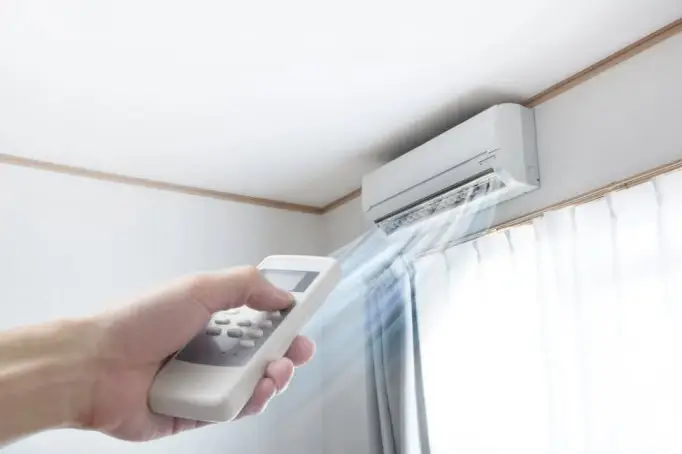Air conditioning has become an essential part of modern life, providing comfort and relief from the scorching heat during the summer months. While it offers respite from the sweltering temperatures, it’s important to be aware of the potential side effects that air conditioning can have on our health. In this article, we will delve into the various health issues that can arise due to prolonged exposure to air conditioning.
Dry Eyes
One of the most prevalent side effects of air conditioning is dry eyes. When the air conditioner runs, it tends to reduce the humidity levels in the room. As a result, the moisture in our eyes evaporates more quickly, leading to dryness, itching, and discomfort. Individuals who already suffer from dry eyes or other eye conditions are particularly susceptible to this issue.
Lethargy
Spending extended periods in an air-conditioned environment can make us feel lethargic and drained of energy. This is because the cool temperature can lower our metabolic rate and slow down our body’s natural processes. Additionally, the lack of fresh air circulation can contribute to a feeling of fatigue and drowsiness.
Dehydration
Air conditioning can deplete the moisture levels in the air, which can, in turn, affect our hydration levels. When the air is dry, our bodies lose moisture more rapidly through respiration and perspiration. This can lead to dehydration if we don’t compensate by drinking enough fluids. Prolonged dehydration can have various health consequences, such as headaches, dry skin, and dizziness.
Dry or Itchy Skin
Another common side effect of air conditioning is dry or itchy skin. When the air lacks humidity, it can cause our skin to lose moisture and become dry, flaky, and irritated. This is especially true for individuals with pre-existing skin conditions such as eczema. Proper hydration and using moisturizers can help mitigate these effects.
Headaches
Air conditioning can trigger headaches in some individuals. The sudden temperature changes between the cool indoor environment and the hot outdoor environment can cause blood vessels in the head to constrict and expand rapidly, leading to headaches. Additionally, prolonged exposure to cold, dry air can cause sinus congestion and exacerbate migraines.
Respiratory Issues
Air conditioning can have detrimental effects on our respiratory system, particularly for individuals with underlying respiratory conditions. The cold and dry air can irritate the airways, leading to symptoms such as coughing, sneezing, and throat discomfort. People with allergies or asthma may experience worsened symptoms in air-conditioned environments.
Allergies and Asthma
Air conditioning systems can be breeding grounds for allergens such as dust, pollen, and mold. If not properly maintained, these allergens can circulate in the air and trigger allergic reactions such as sneezing, coughing, watery eyes, and nasal congestion. Individuals with allergies and asthma are particularly susceptible to these triggers, which can worsen their symptoms and lead to respiratory distress.
Noise Pollution
While air conditioning provides comfort, it can also contribute to noise pollution. The constant humming of the air conditioner can disrupt sleep patterns and cause annoyance, especially during nighttime. Continuous exposure to high levels of noise can lead to sleep disturbances, increased stress levels, and decreased overall well-being.
Infectious Diseases
Air conditioning systems can potentially contribute to the spread of infectious diseases. When not properly maintained and cleaned, they can harbor bacteria, viruses, and fungi. These microorganisms can be circulated in the air, increasing the risk of respiratory infections and illnesses among occupants. Regular maintenance and cleaning of air conditioning units are crucial to minimize the risk of spreading infectious diseases.
Indoor Pollutants
Air conditioning can inadvertently contribute to indoor air pollution. As the air circulates within closed spaces, it can accumulate pollutants such as dust, pet dander, volatile organic compounds (VOCs), and airborne chemicals. Inhaling these pollutants can cause respiratory irritation, allergies, and other health issues. Proper ventilation and air filtration systems are essential to improve indoor air quality and minimize the negative impact of air conditioning on health.
Conclusion
While air conditioning offers relief from hot weather, it’s important to be aware of its potential side effects on our health. Dry eyes, lethargy, dehydration, dry or itchy skin, headaches, respiratory issues, allergies and asthma, noise pollution, infectious diseases, and indoor pollutants are among the common health concerns associated with prolonged exposure to air conditioning.
In contrast, air coolers offer a valuable alternative by maintaining more natural humidity levels in the environment, which can help alleviate many of the dryness-related symptoms associated with air conditioning. Furthermore, air coolers generally operate with less noise and consume less energy, reducing both noise pollution and energy costs. They also circulate fresh air continuously, which can help reduce the concentration of indoor pollutants and pathogens, making them a healthier choice for cooling indoor spaces.
